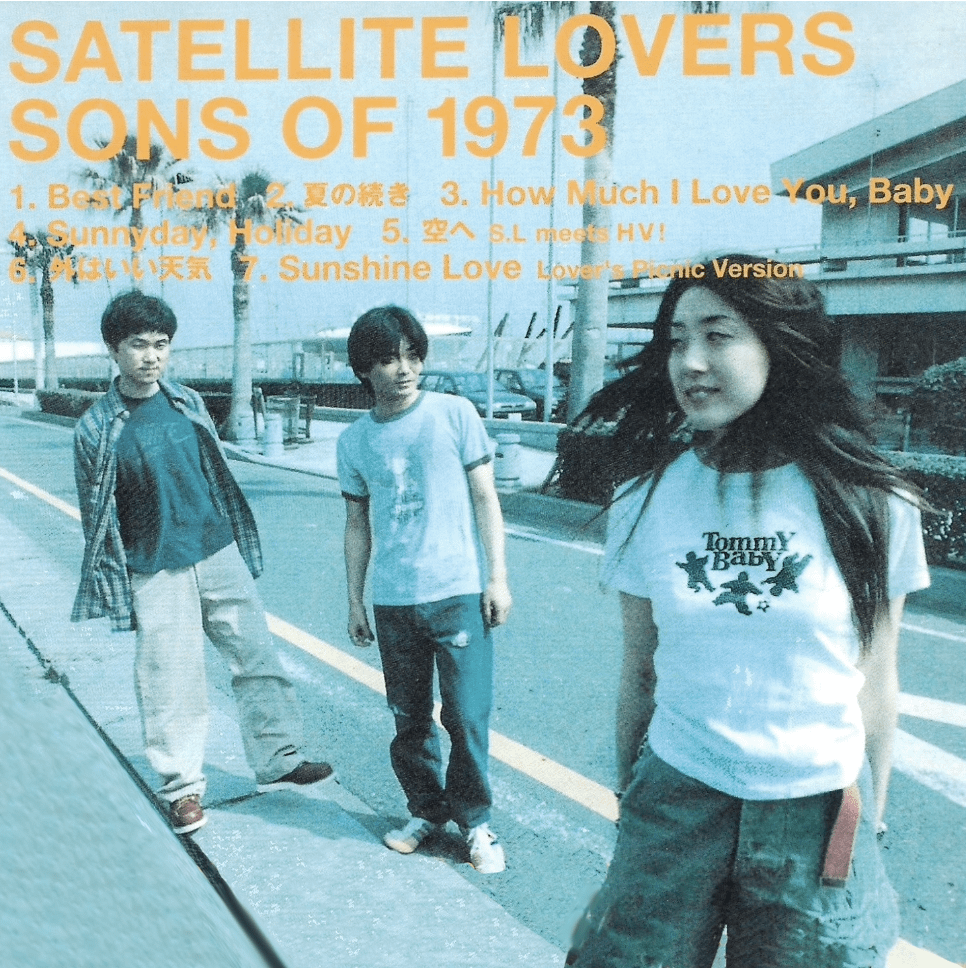I was listening to music on YouTube the other day and there was a recommended video “Satellite Lovers - Sons of 1973 (Full Album)”. The album art looked compelling, and it had 1M+ views (“many people must like it” my chimp brain thought) so I threw it on.
Indeed, it was a great listen. Some nice, delightful, breezy funk-rock.
My curiosity was peaked to learn more about this band Satellite Lovers, only to find out that basically nothing is known about them. If you search around online you get tons of results of people just saying “I heard this band on YouTube”. Apparently, they released a few records in Japan during the ‘90s and then faded away into obscurity.
Some random anon uploaded their music to YouTube in June and the recommendation algo decided for some reason to turbo-boost it. Now a forgotten, inactive, 30+ year-old band is popular again. A modern miracle of The AlgoRhythm™.
The Centralization of Tastemakers
Social Media websites like 𝕏 and Facebook are routinely in the cross-hairs of scrutiny for their influence of the flow of information. We’ve collectively realized that it’s a pretty big deal to control the recommendation algorithms and that they can be used to massively manipulate the opinions of people.
Sliding quietly under the radar though of the algorithm panic, are our music streaming monopolies. For a large percent of the population now, if your music isn’t on Spotify it basically doesn’t exist. When Neil Young decided to pull his records from the service he wasn’t accomplishing anything other than making sure nobody under the age of 30 would every hear his songs again (he has since returned to Spotify).
In Yesteryear, there was the decentralized network of radio DJs. Yes, the radio stations might have had similar ownership and the record companies had influence in determining what would get played, but the authority for making a song popular was spread out over a much larger group of people whose individual influence was less. Now whoever is pushing the weights on the Spotify algorithm has total global control over the music industry. The true Swedish House Mafia is not the electronic band, it’s the cartel of engineers at Spotify S.A. manipulating the charts.
If a banger gets recorded in the studio, but never gets picked up by The AlgoRhythm™ for anyone to hear it does it make a sound?
I can only imagine the bribery and games that go on to try and get songs algo-boosted. Our next Harvey Weinstein style scandal won’t be coming out of Hollywood. It’s going to be some Level 3 engineer at Apple Music who was promising 19 year-olds they’d be pop stars if they sucked him off.
“Ooh that’s that me… Espresso” is certainly catchy, but how much of its chart-topping success was fueled by getting the “nudge” from the boys in Sweden?
Super-Sonic
Why does it matter that we’ve centralized the music listening funnel? Why should we be calling on Spotify for transparency and to open-source their recommendation algo?
For starters, music is basically a form of mind control. The fact that a song can get “stuck in your head” should be mildly alarming to you that you’re dealing with a powerful organization of sound. Ask an American to recite the alphabet, and he’ll probably start doing it in this sing-songy way that he learned when he was 5 years-old. This stuff gets embedded in your mind and soul.
I have a theory that the marker for when your has brain fully developed is the moment when you stop seeking out new music as much and tend to just relisten to the older stuff. You’ve hit the point where that sort of youthful blank-state has ossified and you start having less degrees of openness. Coincidentally, this change in music listening patterns seems to occur for most people in their mid to late 20s.
Along with this idea, your max “music sensitivity” window is from the onset of puberty until your mid-20s. When you’re in a turbulent, hormonal, emotional state that’s when music is going to hit you harder. The records you listen to then will stick with you for a lifetime. You can definitely enjoy new music as you get older, but you probably won’t form those kind of beloved connections with songs and artists as you do when you’re a teen.
If I had a kid I’d probably be less concerned with whatever “woke books” the public school is trying to teach and more worried about what their music diet looks like. Teenagers can barely even focus on a book anymore, music is going to have much more sway on them.
It’s fine to listen to some trash during the teen years, it’s not going to ruin you, but you should also be exposing yourself to some stuff with artistic merit. The problem with streaming is the recommendations are all self-reinforcing. You listen to junk and get fed more junk. You need a friend to point you in the direction of something else or you will keep just circling the drain.
The platforms also offer a very self-centered view of music listening. Playlists are “For You”. It goes to extremes where they’re pushing you to try out the “Literally Me” main character playlist. It’s a very different relationship with music than in past times when it was almost always consumed in a communal setting.
Perils of Over-Abundance
Netflix came out and offered you instant access to movies and TV series whenever you wanted. No waiting, no commercials, limitless video to consume. Somehow instead of being great for the viewer it turned into a place that has everything but there’s nothing to actually watch. “Art” became “Content”. Streaming music is coming close to creating this effect as well. There’s so much noise on Spotify, none of it feels as weighty as when you had some restrictions and what was available.
As time rolls on I question how much music you should really listen to. Probably not the thousands of hours I log every year which I’m reminded of when Spotify drops its annual recap (just for you!). A lot of that is logged in the gym, car, or when doing work. Passive background noise. But, in a world where music is now so pervasive and easily accessible, silence now stands out as the ultimate premium substance.







